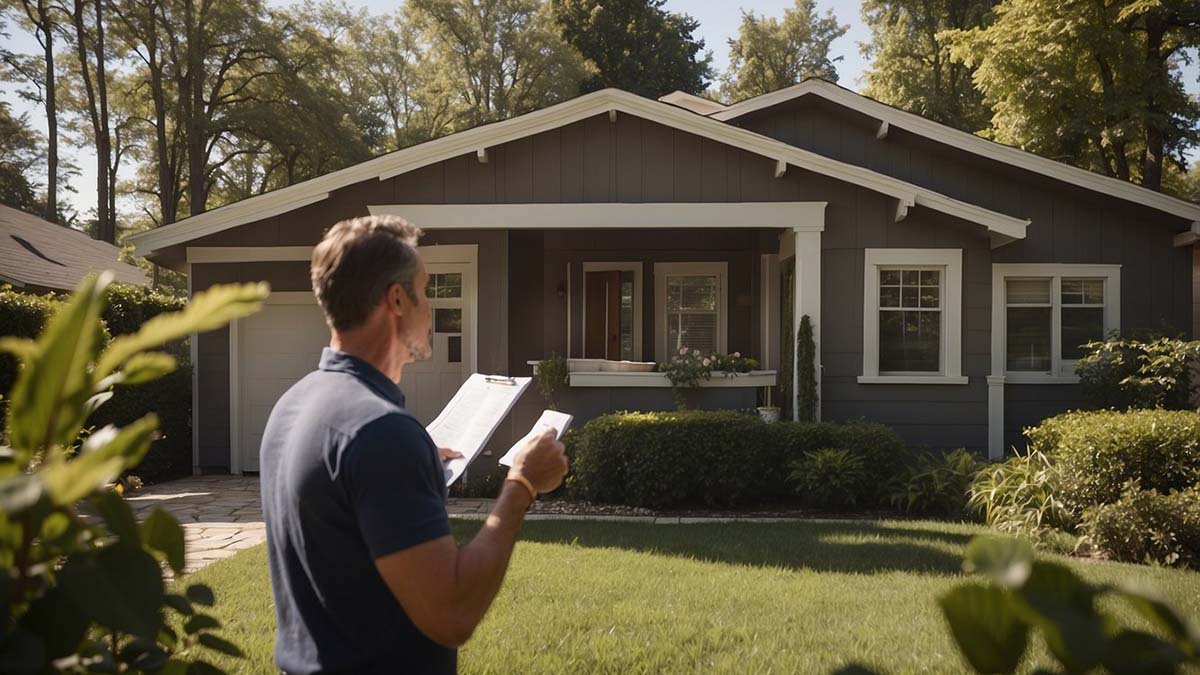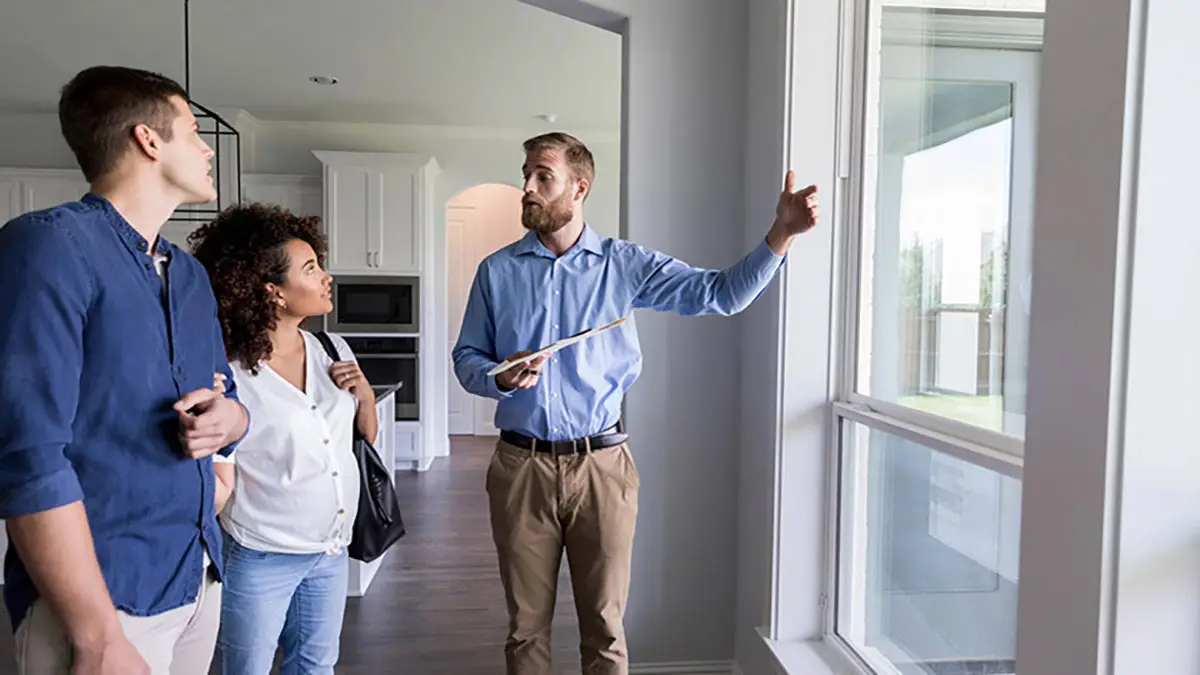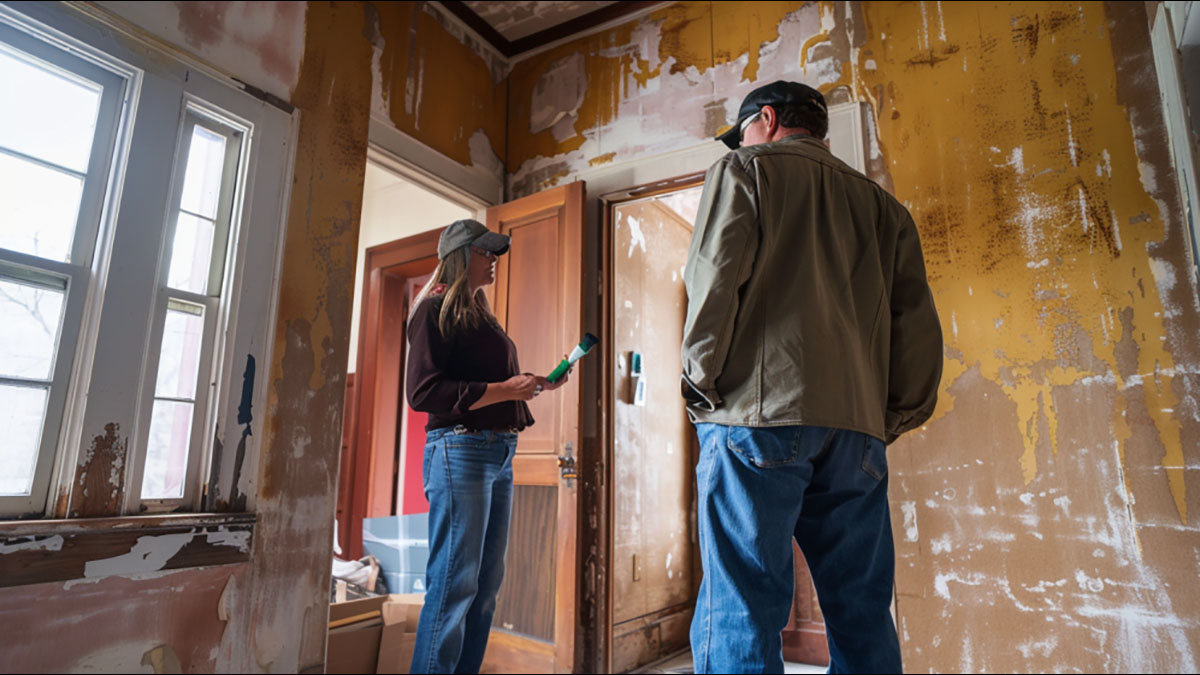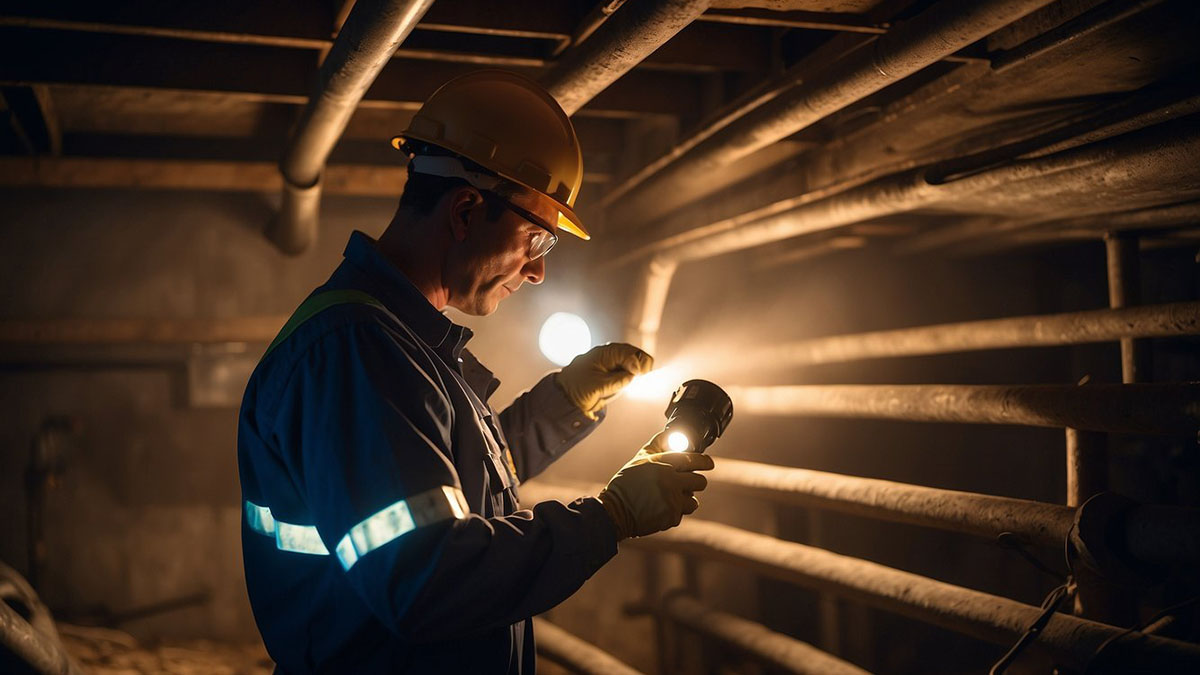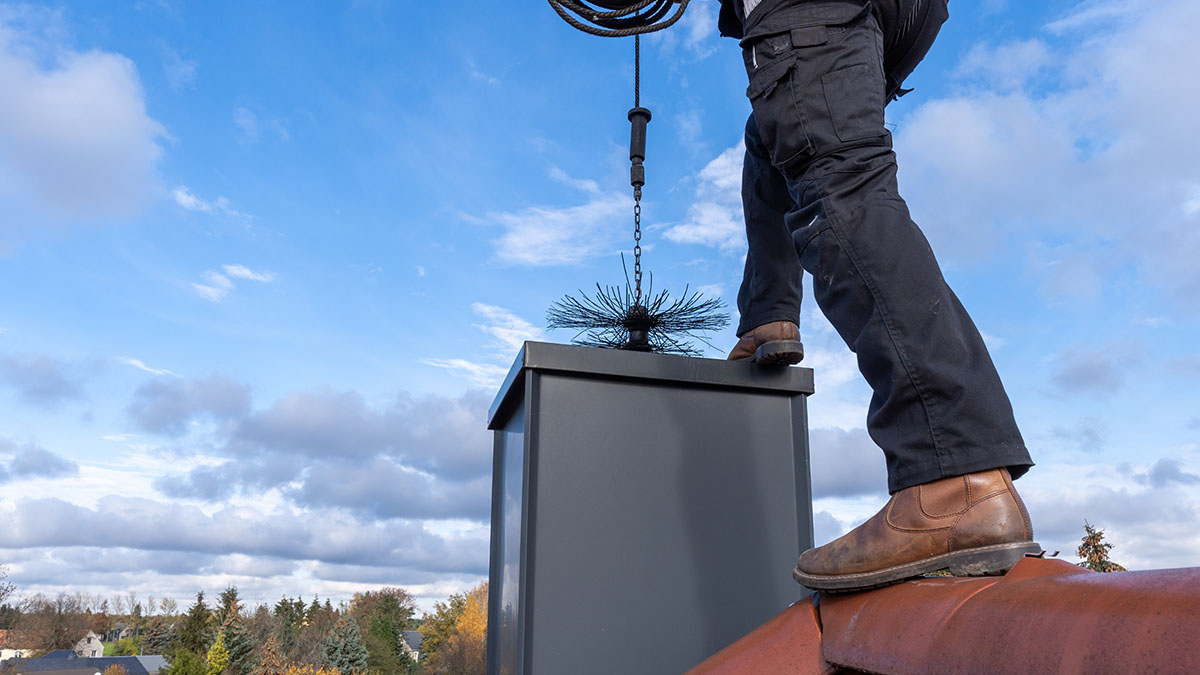Key Takeaways:
- Home inspections provide invaluable insights but come with limitations.
- Understand the distinct roles of home inspectors and contractors.
- Building codes and home inspections serve different purposes.
- Post-inspection issues offer negotiation opportunities.
- Focus on safety and financial well-being when making real estate decisions.
A home inspector does a visual inspection of the property and its systems. They inspect the exterior, interior, structure, and roofing for visible defects. They also test the electrical, plumbing, and HVAC systems. Home inspectors can also identify health hazards like lead paint, asbestos, mold, and radon.
A home inspector checks the walls and flooring to ensure they are solid. They also check the pipes and wiring to make sure everything works correctly. Additionally, they inspect the roof to ensure it won’t leak.
Home inspectors also look for pests like mice or termites, which can damage your house structure and systems. Getting a house inspection is important. It helps you avoid hidden problems that could cost money later.
A home inspection helps you make informed decisions. It’s like a compass. It is important to understand what it can and cannot do to navigate challenges and seize opportunities.
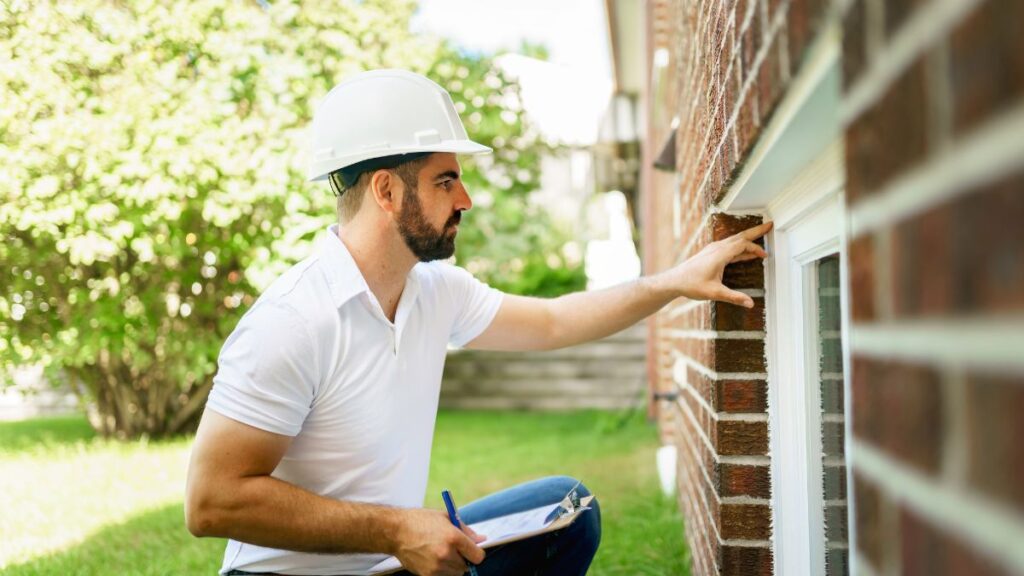
What is a Home Inspector?
A home inspector is a licensed or certified professional who looks at and documents the condition of a residential property, typically before it is sold.
They conduct a thorough inspection of the property to identify any structural, mechanical, or safety issues. The home inspector provides a detailed report outlining their findings, which helps buyers and sellers make informed decisions about the property.
Most inspectors adhere to a strict set of Standards of Practice (SOPs) and Code of Ethics guidelines established by the National Association of Certified Home Inspectors (NACHI) or the American Society of Home Inspectors (ASHI).
What Does a Home Inspector Do?
Here’s a comprehensive home inspection checklist to guide you through every step.
Structure Inspection
Dive deep into the bones of the property.
- Foundation, Walls, and Framing:
- You want a home that stands strong and sturdy. Pay close attention to the foundation. Look for cracks or shifts that might indicate issues. Walls and framing are the skeleton of your home; ensure they’re robust and free from damage.
- Addressing Structural Issues:
- Spotting a problem? Don’t sweep it under the rug. Addressing structural issues immediately can avoid future problems and keep everyone safe at home.
Roof Inspection
The roof over your head deserves special attention.
- Identifying Water Leaks and Damages:
- A leaky roof can lead to a cascade of problems. From water stains to mold growth, the repercussions can be vast. Ensure the roof is free from damage and the shingles are intact.
- Roof Safety:
- Beyond aesthetics, the roof’s primary function is protection. Ensure it’s equipped to shield you from the elements, be it rain, snow, or sun.
Exterior Inspection
First impressions matter, and the exterior of your home sets the tone.
- Siding, Windows, and Doors:
- Cracked siding, faulty windows, or jammed doors? These aren’t just cosmetic issues. They can impact energy efficiency and security. Ensure they’re in top shape.
- Weather Damage Protection:
- Your home faces the brunt of weather changes. Proper insulation and quality materials ensure it remains unscathed, whether rain or shine.
Interior Inspection
The heart of your home deserves a thorough check.
- Water Damage, Electrical Wiring, and Plumbing Systems:
- From ceiling to floor, ensure there’s no sign of water damage. Examine the electrical wiring for safety and check the plumbing systems. A small leak can lead to significant problems.
Electrical Inspection
Electricity powers your home, but it needs to be handled with care.
- Electrical Panels, Outlets, and Wiring:
- Flickering lights or sparking outlets? Dive into the electrical systems. Ensure the panels are up-to-date, outlets are functioning, and wiring is safe.
Plumbing Inspection
Water is essential, but it needs to flow in the right direction.
- Water Heater, Pipes, and Fixtures:
- A cold shower on a winter morning? No, thank you! Ensure the water heater is functioning. Check pipes for leaks and ensure fixtures are in good condition.
HVAC Inspection
Comfort is key, and your HVAC system plays a pivotal role.
- Heating, Ventilation, and Air Conditioning Systems:
- Whether winter’s chill or summer’s heat, your HVAC system keeps the home comfortable. Ensure it’s running efficiently and is well-maintained.
A home is more than just bricks and mortar. It’s a sanctuary, a haven. You feel safe and happy for many years when every part is in good condition. Armed with this checklist, you’re well-equipped to make informed decisions.
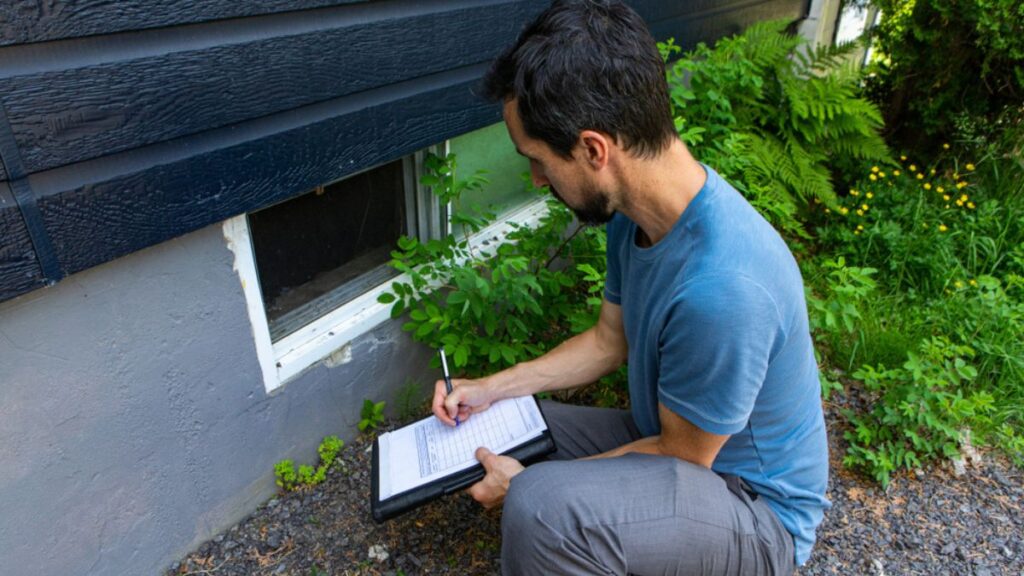
What Home Inspectors Don’t Do?
Navigating the world of home inspections? While inspectors play a pivotal role in the real estate process, understanding their limitations is crucial.
Home Inspections Have Limitations
Home inspections offer a deep dive into a property’s condition but have some limitations. Inspectors rely on visual assessments. They steer clear of destructive or invasive testing. So, while they spot visible issues, hidden problems might remain undetected.
Here is a list of potential limitations:
- Home Inspectors may only access areas that are safe and easy to reach, such as crawl spaces and attics.
- A regular home inspection usually does not check for pests, radon gas, air quality, or other hazards. You would need to pay extra for those additional inspection services.
- The inspection is not valid for code compliance or other legal matters.
- Sometimes, home inspectors miss things that can cause expensive damage if not found early. For example, a damaged shingle or a poorly installed electrical outlet.
- A home inspector’s report does not guarantee that additional problems won’t surface in the future.
- The report may include only some of the information you need to make an informed decision about the condition of a property.
- Home Inspectors do not provide repair or warranty services.
- The home inspection fee does not include additional services such as engineering, radon testing, and mold testing.
- It is important to understand that there is no guarantee that an inspection will uncover all potential problems.
Differences Between Home Inspectors and Contractors
While both professionals delve into the intricacies of homes, their roles differ. Home inspectors assess and report on a property’s condition. Contractors, on the other hand, repair and renovate. Expect your inspector to refrain from providing repair estimates or renovation tips.
The inspector may identify areas needing attention. In most cases, they will suggest getting a contractor’s evaluation. Your inspector might recommend rechecking electrical systems to ensure they are safe and meet codes.
Also, home inspectors need the authority to require major repairs or modifications. The role of a home inspector is to identify defects, not recommend repairs. We can’t force a homeowner to make any repairs, including major issues.
Home Inspectors and Building Codes
Inspectors focus on a property’s current condition, not on code compliance. They might point out outdated features, but they don’t enforce local building codes. Remember, their primary goal is to inform, not to regulate.
While many home inspectors do know building codes, some don’t. They aren’t required to know codes. Besides, codes change every 2 to 3 years. An existing home built in 1980 doesn’t have to meet today’s building codes.
You can bet even a house built in 2015 doesn’t meet today’s building codes because things constantly change. Besides, codes in one state differ from other states.
Why Home Inspections are Important?
When making your real estate purchase agreement, your real estate agent included an inspection contingency clause. The contingency requires the seller to allow the potential buyers to have a home inspection by a professional company.
An unsatisfactory inspection could mean renegotiating repairs or voiding the purchase contract.
Some “AS IS” transactions may waive the inspection contingency. You can still have a home inspection. You can’t exit the purchase contract based on the inspection findings.
Pre-Purchase Inspections for Prospective Buyers
Imagine making the biggest investment of your life and later discovering hidden flaws. Frustrating, right? Home inspections protect you, ensuring you know every nook and cranny of your potential new home. They give you a clear picture, helping you make an informed decision.
Cosmetic issues are common, and your inspector may not even include it. Minor issues are also common and can often be repaired by a qualified handyman.
If major defects are discovered, you gain leverage in price negotiations. Spotting major issues beforehand allows you to discuss potential price reductions or request repairs.
Pre-Listing Inspections for Sellers
A pre-listing home inspection can be a game-changer. Many real estate agents are encouraging them now. You can fix problems before listing, making your property more attractive and valuable.
It’s also a great way to increase your chances of selling quickly and at the highest price. Transparency is key in real estate. Providing a property inspection report to buyers shows your honesty and builds trust.
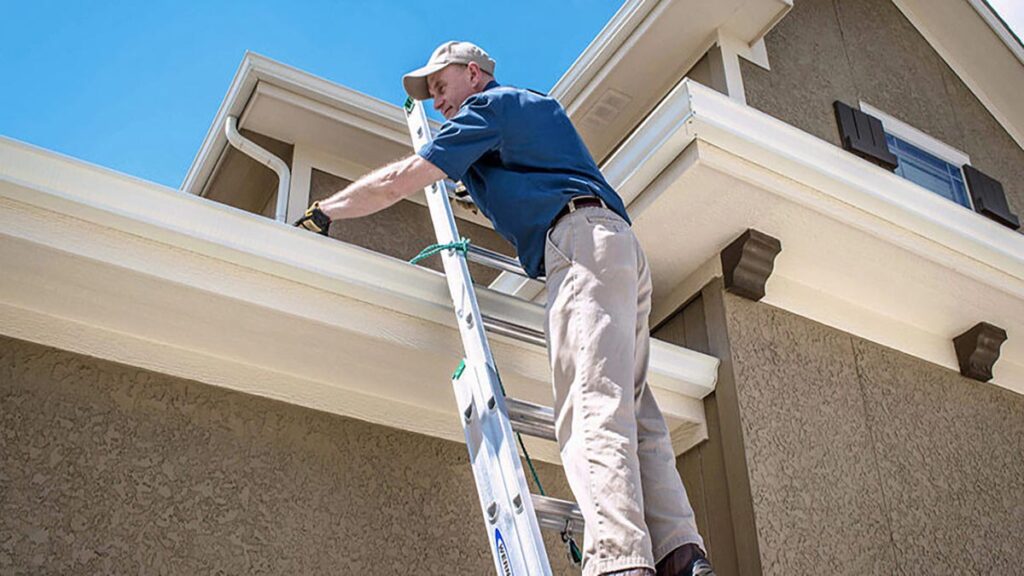
Role of a Home Inspector in Real Estate
Before Closing a Sale:
A home inspector is your final checkpoint. Before finalizing the agreement, they ensure the property is in excellent condition and has no hidden problems that could arise later. They meticulously assess every aspect, from the foundation to the roof, ensuring you make a sound investment.
Hiring a Qualified Inspector:
Not all inspectors are created equal. The importance of hiring a qualified professional cannot be stressed enough. A certified inspector knows the Standards of Practice well and is very thorough.
Licensed home inspectors are licensed to perform inspections and are governed by the state licensing board. Not all states have home inspector licensing.
Certified home inspectors have received training and certification from:
- International Association of Certified Home Inspectors (NACHI)
- American Society of Home Inspectors (ASHI)
Both professional organizations have strict Standards of Practice and a Code of Ethics. These are not the only organizations, but they are the largest.
Both are professional home inspectors who don’t just check boxes; they delve deep, ensuring every part of the property is safe, functional, and up to the mark.
What if a Home Inspection Reveals Problems?
Discovering issues post-inspection can be daunting, but you’re far from powerless.
Options for Buyers and Sellers
Knowledge is power. Armed with an inspection report, both parties can make informed decisions. Sellers might opt to fix issues, while buyers can reconsider their offer.
Negotiating Repairs or Price Adjustments
Unearthed a significant problem? Use it as a negotiation tool. You might request repairs or a price reduction to account for future renovations.
Walking Away from a Deal
Sometimes, the best option is to step back. Big problems, like safety issues or expensive repairs, might make you not want it. Trust your instincts and prioritize your best interests.
Also, read 7 Red Flags to Walk Away After a Home Inspection for more.
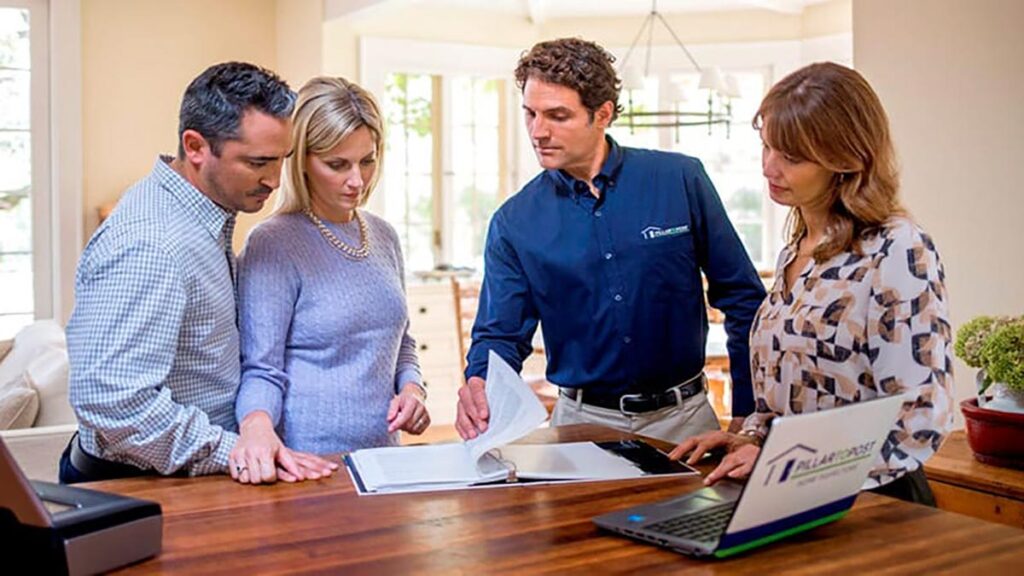
What is the Riskiest Part of a Home Inspection?
Every home is unique, and so are its potential issues. Some areas often raise red flags:
- Roof and Foundation: Issues here can be costly and pose significant safety concerns.
- Water Damage: Water damage can occur from leaking pipes, flooding, or other forms of water intrusion.
- Electrical Systems: Faulty wiring can lead to fires or electrical shocks.
- HVAC Systems: Malfunctioning heating, ventilation, and air conditioning systems can affect comfort and air quality.
Although these areas may cause worry, remember that the inspection aims to inform, not intimidate. You can negotiate, make good decisions, or ask for repairs when you know.
Home inspections may seem overwhelming, but they’re important to buying. Understanding their purpose makes them helpful.
Home Inspection FAQs
Navigating the world of home inspections can be filled with uncertainties. Let’s address some of the most pressing questions you might have.
Do home inspectors always find something wrong?
Perfection is rare in real estate. Home inspectors will often find problems, whether they are big or small. Their job revolves around thoroughness. Some findings are unimportant, but others are important for safety and functionality. It’s not about finding faults; it’s about ensuring you’re well-informed.
Is it normal to be nervous about a home inspection?
Buying a home is a monumental decision. The inspection phase can feel like a moment of truth, with emotions running high. But take a deep breath. A home inspection equips you with knowledge and ensures your investment is sound and your future home is safe. Embrace it as a protective step.
What are red flags in a home inspection?
Red flags in a home inspection may include structural damage, water damage, mold or pest infestations, outdated electrical wiring, inadequate ventilation, plumbing issues, and poor drainage.
What should buyers do during a home inspection?
A home inspection can last 2 to 3 hours. Buyers are encouraged to attend their home inspection but not interfere in the home inspection process. After the inspection, this is a good time to ask questions and gather information on the findings.
What is a major defect in a house?
A major defect in a house includes structural damage such as foundation cracks, roof leaks, water damage, or termite infestations. These problems can cause expensive repairs and harm the home’s occupants.
Is the home inspection fee included in closing costs?
No, the home inspection fee is not usually included in closing costs. The buyer typically pays for the home inspection directly.


